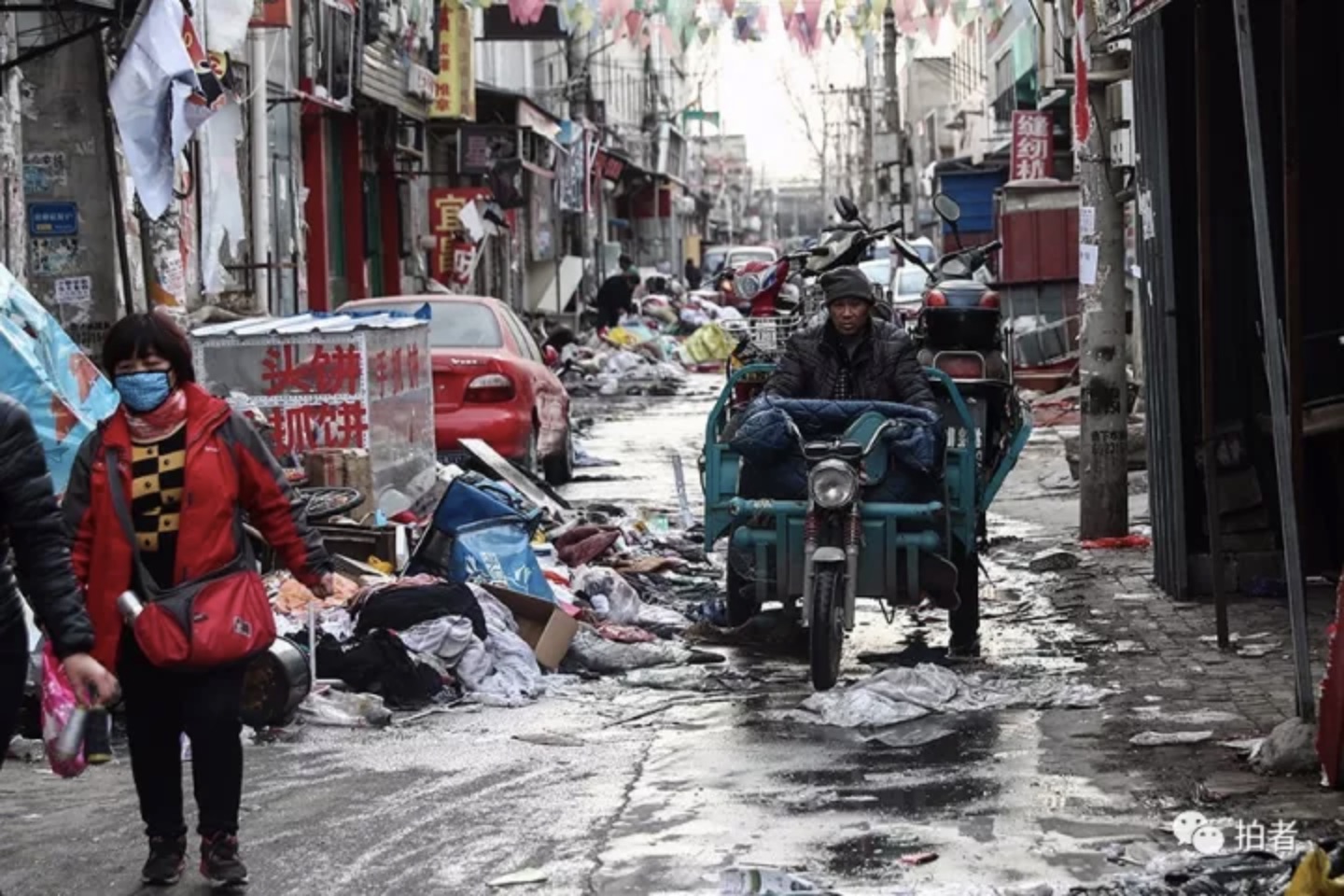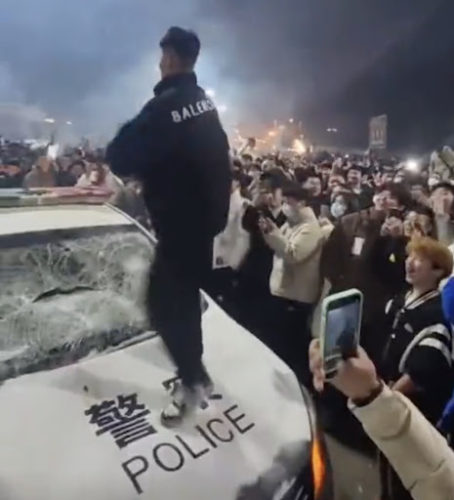Beijing haphazardly evicts migrants for ‘safety’

On the evening of November 18, a fire in a tatty part of southern Beijing killed 19 people. The victims were probably all migrants workers and their families — seven children died. Investigators found that the fire started in “a refrigerated warehouse in the basement of a two-story building, which housed an industrial plant and residential apartments,” according to Caixin.
Since the fire, the tragedy has taken more than just lives: Part of the response from the authorities has been a new wave of evictions from substandard housing in Beijing’s poorer districts, targeting migrant workers. This has led to cries of injustice from Beijing’s intellectuals, middle-class online communities, and even some state media outlets: These voices do not find the official line that evictions are for “safety” to be convincing, as leaders have previously stated their goal of pushing Beijing’s migrant population further and further out from the city center.
Here is the full story on the fire and its aftermath:
First, some context about the fire, and others like it.
- The fire occurred in the shantytown of Xinjian Village 新建村 in Xihongmen Town 西红门镇, Daxing District 大兴区, on the outskirts of Beijing (just inside Sixth Ring Road). See pictures of the neighborhood, now deserted, here and here.
- China Labor Bulletin says that this incident was “almost an exact replica of an incident six years earlier in 2011 that occurred just a few kilometers away in Nanxiaojie, inside the Fifth Ring Road. That fire, at an illegally constructed garment factory, killed 18 migrant workers and injured 23 others.”
- The People’s Daily notes (in Chinese) that “seven major fires” have occurred in construction sites in Beijing this year.
- As soon as the fire was extinguished, Beijing’s Communist Party secretary, Cai Qi 蔡奇, went on TV to declare the tragedy a “wake-up call” and announced a series of citywide inspections on unsafe buildings, Caixin reported. The landlord of the building and several others were immediately detained by police.

The initial inspections morphed into a 40-day campaign to crack down on unsafe housing.
- Caixin reports that this campaign has led to “en masse evictions” of “thousands” in at least Tongzhou, Changping, and Daxing districts, with many residents being told they have just a day or two to gather all of their possessions and get out.
- Residents told China Labor Bulletin (and Caixin) that electricity and water were cut off even before the eviction dates, leaving evictees to fend for themselves in freezing outdoor temperatures.
- This campaign appears to have greatly intensified preexisting trends in Beijing’s housing and labor market. Xinjian Village in particular was already “in the midst of a demolition campaign,” China Labor Bulletin notes, and SCMP adds that “before the fire, workers with no job options had already been leaving central Beijing amid a shutdown of wholesale markets, warehouses and construction materials markets.”
- Measures pushing migrant workers out have been so successful, a study by the Beijing University of Technology found in October, that “Beijing is very likely to see a tipping point” from population growth to shrinkage by the end of 2017.
Repost, weird technical glitch. Insane rubble as far as the eye can see at site of #Beijing garment district #fire, after authorities demolished the entire block of factories and buildings they say were not up to code pic.twitter.com/Os2wadBnUX
— Rebecca Davis (@rebeccaludavis) November 27, 2017
A migrant family is leaving Beijing under a government-mandated evacuation. They had 15mins to clear all their belongings. Behind them is a big banner saying the great “Xi Jinping new era”. pic.twitter.com/awuTCQG8Jb
— Keith Zhai (@QiZHAI) November 26, 2017
A public outcry over the plight of Beijing’s migrant workers erupted online.
- Over 100 intellectuals and scholars have condemned the evictions, the Guardian reports. “Any civilized and law-abiding society cannot tolerate this, we must clearly condemn and oppose these actions,” they wrote in an open letter.
- Noted legal scholar He Weifang 贺卫方 said in a separate letter — handwritten and distributed via friends, because his writings online are routinely censored — that the evictions were a “gigantic satire of the so-called ‘core values’” of socialism, which are heavily promoted by the government, especially via streetside posters in Beijing. Georgetown University law professor Donald Clarke translates He’s statement here.
- What’s on Weibo has a roundup of some social media reaction to the evictions, which primarily criticized the disorienting haste of the campaign.
- State media played a split role in reacting to the blowback. On the one hand, Caixin notes some unusual criticism of a lack of “respect” and “compassion” for migrants from outlets such as China Daily and China Central Television’s WeChat channel.
- On the other hand, state media such as Global Times denied forcefully claims that the evictions were meant to force out Beijing’s “low-end population” (低端人口 dīduān rénkǒu), a term now “associated with harboring prejudice against migrants” that Quartz traces back to state media in 2010. Global Times insists that the evictions are “only aimed at eliminating fire and other hazards.”
- But that’s not how this campaign feels to the migrants affected. One 26-year-old man who had come from Yuncheng, Shanxi Province, to work at a car parts assembly in the neighborhood told SCMP, “I wanted to make more money, but now it looks like Beijing is not for people like us.”
北京欢迎你 welcome to Beijing pic.twitter.com/usGFc6zDfG
— Yuan Zeng (@ImYuanZeng) November 26, 2017

Also see:






